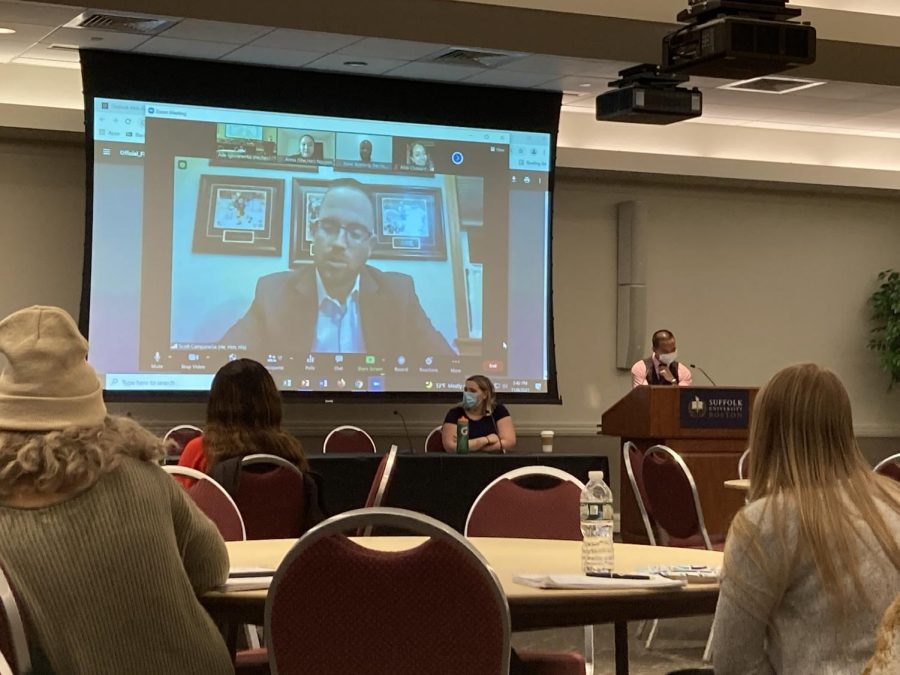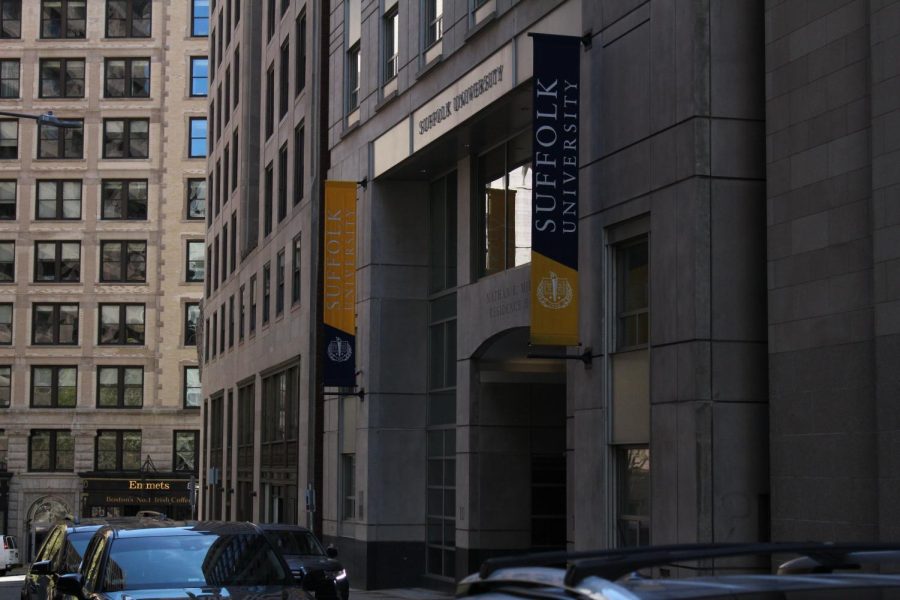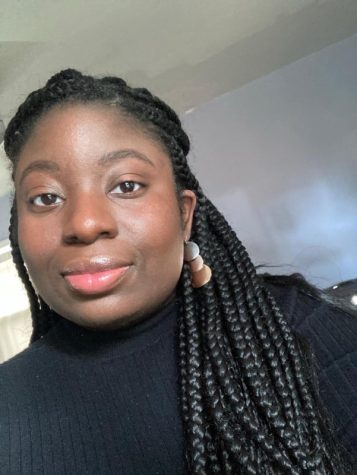Suffolk University kicked off its fifth annual First-Generation Student Celebration on Monday. Suffolk invited four alumni to discuss imposter syndrome, how it affected their lives after they graduated and how they overcame their feelings of self-doubt.
Director of Suffolk’s Center for Career and Equity Ade Igbineweka, one of the hosts of Monday’s panel, wanted to make sure Suffolk’s first-generation students had the tools they needed to succeed.
“Being a first-generation [student] is a process. But, our first-generation [alumni] are doing amazing things, and we want students to learn from the alumni’s process,” said Igbineweka.
To define imposter syndrome, host and Program Director of McNair scholars, Dr. Jarvis Chen, used a few quotes from public figures as examples, ultimately defining imposter syndrome as ”the idea you’ve only succeeded due to luck and not because of your talent or qualifications.”
“It’s something every single person feels no matter who they are,” Chen said.
Carolyn Rea, alumnus and current assistant director of career education at Suffolk, said when experiencing imposter syndrome, she tends to talk really fast. Rea said “she feels like a teenager when experiencing imposter syndrome.”
Anna Nguyen, who used to be a resident assistant at Suffolk and president of the university’s Asian American Association, now works at a dental company. Nguyen, who plans to apply to dental school, said that she’s her own “worst critic.”
When asked how the alumnus overcame the feeling of being their worst critic, Nguyen said having a support system and confidence in yourself is important. This was especially true when she felt imposter syndrome at her first post-college job, when she asked herself if she even belonged there. She concluded that she did.
For Isaac Boateng, he chants “I got this” to calm himself down.
Boateng, a previous Suffolk student, currently works on Capitol Hill and invests in real estate. Boateng also added that receiving guidance from your peers is helpful. Or as Chen calls it, a “cheer squad.”
“I knew I deserved to be in my position when others solidified what I did and gave me support,” Boateng said.
Scott Campenella, an alumnus and father, previously worked for a representative when attending Suffolk.
“It’s knowing who your cheer squad is and who you can rely on,” Campenella told students. Campenella, who is no stranger to “cheer squads,” is also a football coach.
The four alumni were asked to share a time they overcame imposter syndrome. Campenella shared about when he went up to his manager and thanked her for hiring him as an “older” person. Confused, Campenella’s manager listed his accomplishments.
“This allowed me to focus on what really mattered,” Campenella said.
Chen sympathized with Campenella and Boateng and told his own self-doubting experience when his dissertation was praised by his peers, which confused him.
“I thought they read it wrong,” said Chen.
On a lighter note, the panel also shared how they celebrate their victories. Rea said she “woo’s herself” when she accomplishes something. Rea also shares her victories with her “support squad” of friends and family in her inner circle.
“I celebrate often, not just the big milestones. I celebrate every day,” she said.
Boateng has his cheat days. After his big project victories he tells himself, “I did this, I deserve this,” to which he eats ice cream and binge watches Netflix shows. He also shares his victories within his close circle.
Nyugen treats herself by going out to dinner with her friends.
“Make sure it isn’t a chore, but a hobby,” Nyugen said.
The alumni also shared who their role models are.
For Nyugen, it’s her father.
“As a first generation student, it’s hard,” she said.
Nyugen was the first kid in her family to graduate. Her parents inspire her, not only as a first-generation student but as a future parent.
Campenella shared that his mother is one of his biggest role models as she taught him to be unapologetic and empathetic, and gave him a “zone of comfort” growing up.
Rea’s high school basketball coach is her biggest role model, since they both bonded over being first-generation students.
“I love my parents, but they couldn’t relate to being a first generation student. My coach was,” Rea said.
Boateng’s role model is his mother, who always encouraged him to “go further.”
The panel allowed Suffolk students to hear alumni’s feelings of self-doubt when it comes to education and their accomplishments outside of Suffolk. However, panelists encourage students to not let imposter syndrome rule their lives.
“The worst thing that can happen is someone saying no. Take that chance, the butterflies are normal, and tell yourself that you belong,” Boateng said.
Suffolk’s First-Generation College Student Celebration will continue through Nov. 12.
Follow Val on Twitter @val_leyn




















